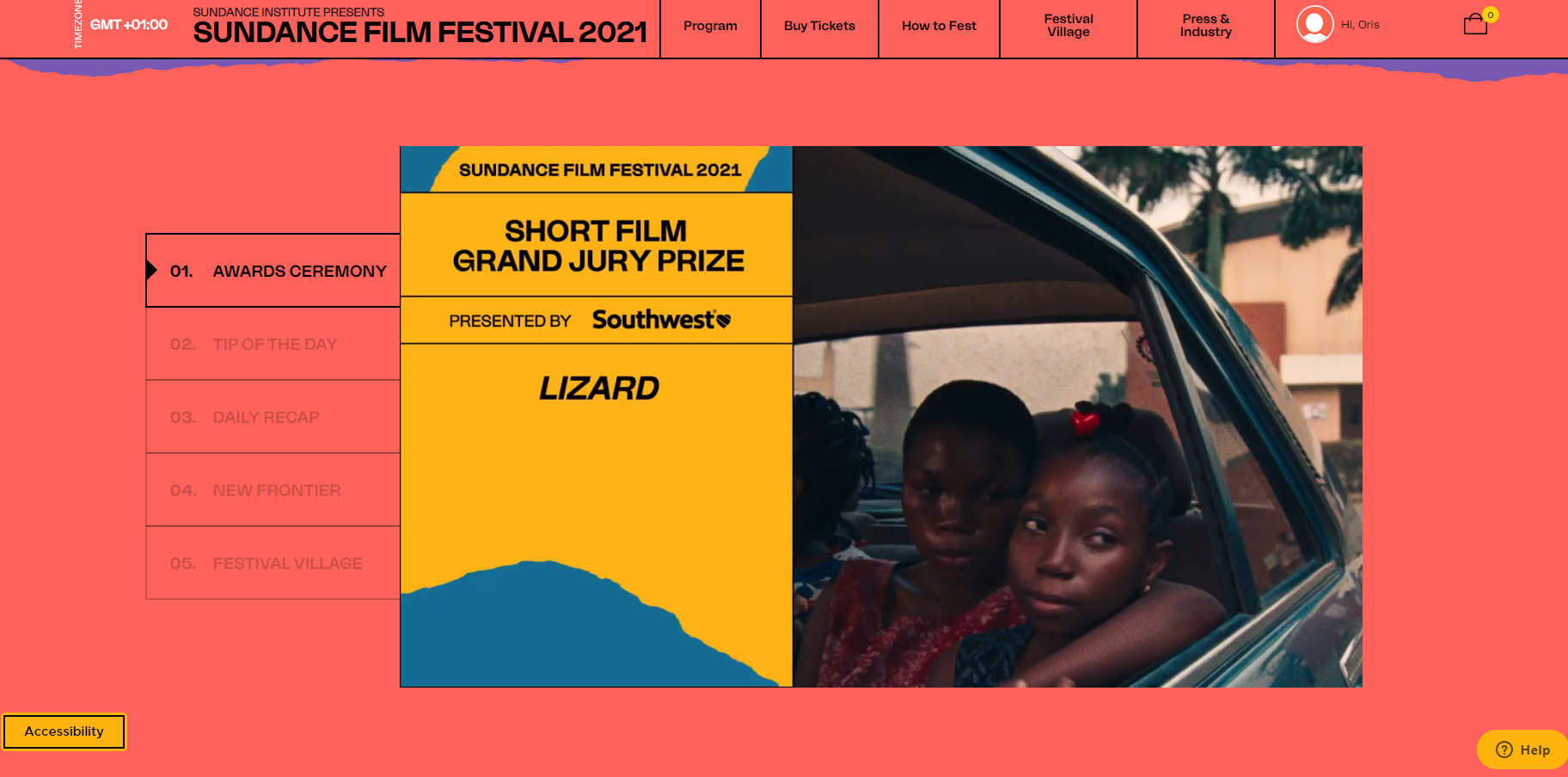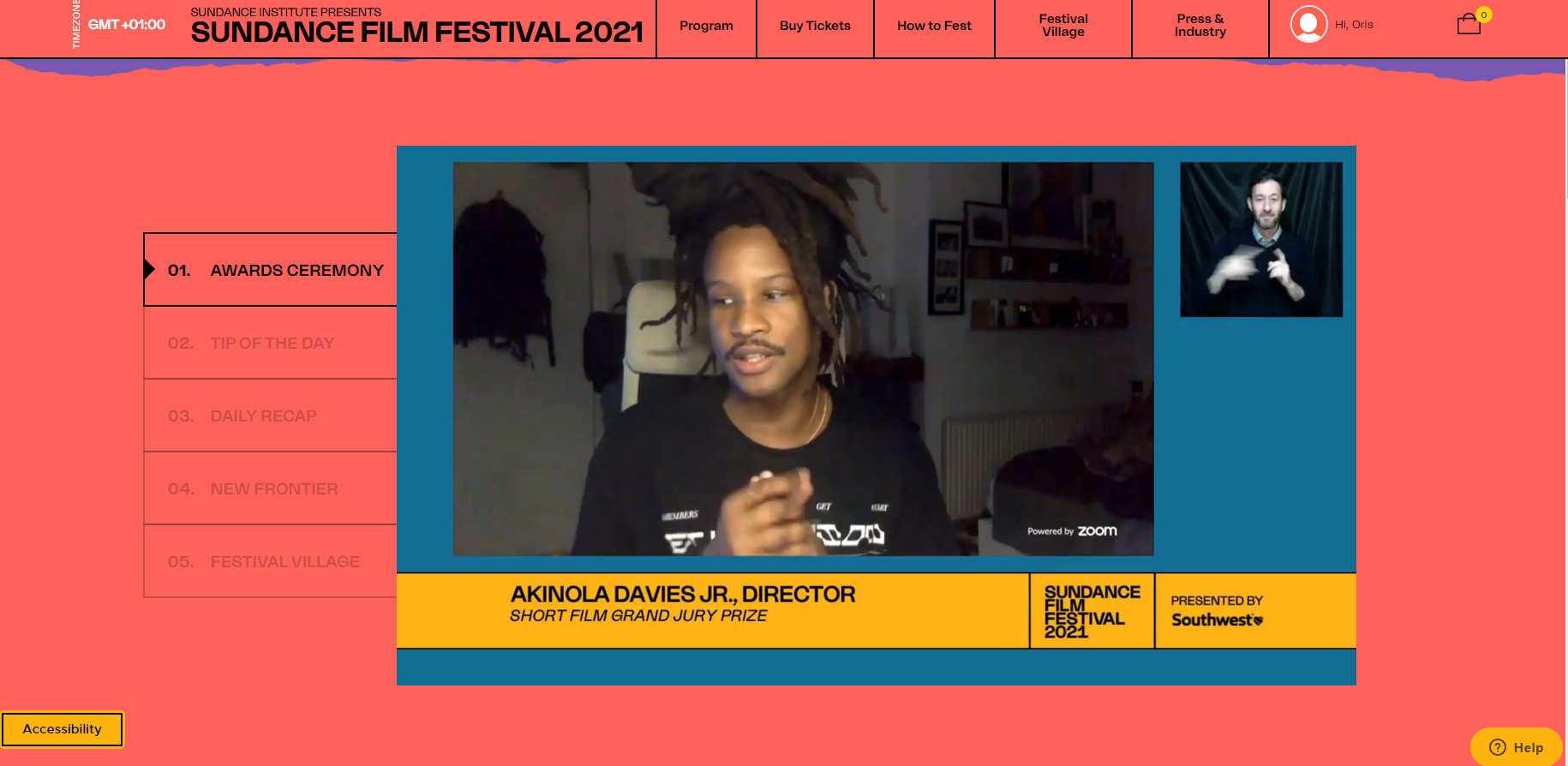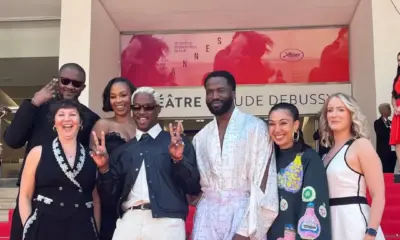Features
Oris Aigbokhaevbolo: Why Akinola Davies Jr’s Sundance Win for “Lizard” is Great for Nollywood

Around 2 AM yesterday, festival director, Tabitha Jackson, and other members of the Sundance Film Festival, the biggest independent film festival in the United States, kicked off the awards ceremony for 2021. The comedian, Patton Oswalt, was on hosting duties.
Since the coronavirus had upended everything normal about festivals, instead of receiving an invitation to a hall somewhere in Utah as I did last year, I clicked a link to catch the entire event live on festival.sundance.org, the site that had brought me films from the festival since 28 January.
One of those films was Lizard, a short film directed by Akinola Davies Jnr. In case you don’t get the importance of that sentence, let me put it differently for you: A filmmaker with a Nigerian name was showing at the biggest independent film festival in the US. It was not the first time such a filmmaker was showing at Sundance – only a few years ago, Chinonye Chukwu’s feature film, Clemency, had both shown and won at the festival.
But this was special. According to the film’s synopsis, this was a film set in Nigeria with Nigerian actors. Clemency was about the American justice system starring the acclaimed American actor, Alfre Woodard. Neither film entered Sundance as Goliath but Lizard was a lot more diminutive – and not just because of its length.
Davies’s film tells the story of a child (newcomer Ayodeji Pamilerin) attending Sunday school in 1990s’ Lagos. When she gets ejected from the lesson, she begins an unguided tour through the church premises as led by an agama. She discovers some backstage sexual shenanigans involving a pastor (played by Demi Banwo), some money play (in a scene showing old naira notes), and finds a way to cajole the church’s guard (Charles Etubiebi) into buying her ice cream. Her metaphysical adventure ends when her family comes face to face with violence. The film itself ends on a somewhat ambiguous note, leaving the viewer to parse what might follow. What is clear is that a child has witnessed the hidden world of adults involving corruption, sex, and, perhaps, fraud. It’s unclear if she understands most of what she has witnessed but the final collision with violence would hardly require interpretation.
Along with Pamilerin’s performance, the film works mainly because of its handling of two things: the interplay between sound and silence, and its visual aesthetics.
For most of the film’s duration, the dialogue spoken is written in a way that doesn’t allow for extraneous words, or even extraneous syllables and Davies isn’t afraid of using silence. The effect of this tight script (which Akinola co-wrote with his brother, Wale Davies, popularly known as Tec from famed rap group Show Dem Camp) and its judicious use of silence are pronounced when the film shows a rare verbal bombas — as in a scene featuring a very engaged preacher (played by Patrick Diabuah). The force of this pastor’s words attains effectiveness that wouldn’t feel quite as potent without the silence in surrounding scenes.
Lizard’s other striking feature, its visual aesthetics, can be attributed to the decision by the filmmakers to shoot on film. This lends the picture an almost granular appearance, which is quite clearly accentuated by the film’s Lagos setting. If you were walking past a screen showing Lizard, you’d guess it is a Nigerian film. If you are used to the average Nollywood fare, you might wonder why it appears the way it does. Visually, Lizard feels like a cross between an old Yoruba film and Genevieve Nnaji’s Lionheart. And yet, perhaps because it’s from the point of view of a Nigerian child in a recognisably Nigerian environment, the film is relatable even with its fantastic elements. How many of us, as kids, didn’t launch into a daydream while attending Sunday school?
After seeing the film last week, I reached out to the film’s team and some hours before the Sundance Awards, I spoke with Davies for about an hour on Zoom. (Follow me on Twitter @catchoris to know when the interview gets published.) The awards were still in the future at the time, but he thought the Sundance short film programmers had found something worth showing to their audience about Nigeria, which isn’t a place they hear about outside of the news. Put differently, by selecting Lizard, they were bringing news from elsewhere to Sundance festival-goers.

That particular insight and the fact that Lizard went on to win the Grand Jury Prize for Short Films at Sundance provides another reason some Nigerian filmmakers should aim to appear at international festivals. Although funding for the film came from the UK, which Davies has made his home since 1998, the film has Nigeria all over it. It stands to reason that Nigerian filmmakers, even those based here, stand a chance.
Last year, I wrote about the absence of Nigeria from the major film festivals of the world and dreamed that it can be corrected. This year, I am happy that the dream has been fulfilled. It is early days yet but the door is open.
Akinola Davies Jnr. told me hours before he became an award-winning filmmaker that he is proud to be referred to as a Nollywood filmmaker, which, I admit, I was happy to hear. He also said he hoped his short film opens doors for Nigerian filmmaking talent.
Well, if his big win at Sundance stimulates Nollywood into getting out there in style, his hopes would have been met even sooner than he imagined. In the meantime, I send my congratulations to him and his team. I also offer my script consulting and film publicity services to Nigerian filmmakers.
Lizard has become the first Nigerian film to win at Sundance. May it not be the last. Can I hear an amen?





















